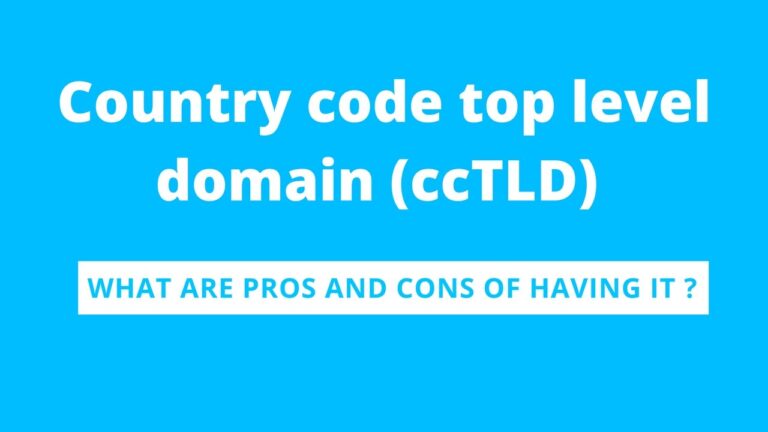Domain name disputes can have a significant impact on search engine optimization (SEO) strategies, potentially affecting the visibility and ranking of websites. When two or more parties claim rights to a domain name, it can lead to conflicts and legal battles that not only result in wasted time and resources, but also have long-term consequences for a website’s online presence. This article will explore the various ways in which domain name disputes can impact SEO efforts, including potential loss of organic traffic, negative impact on backlink profile, and diminished brand credibility. By understanding the repercussions of domain name disputes, website owners and SEO professionals can take proactive measures to mitigate these effects and protect their online presence.
Understanding Domain Names and SEO
In the digital landscape, domain names play a crucial role in establishing online presence and driving traffic to websites. A domain name acts as the online identity for a business or individual, serving as the address that users use to access a website.
Search engine optimization (SEO), on the other hand, refers to the techniques and strategies employed to improve a website’s visibility and ranking on search engine results pages (SERPs). SEO practices are essential for businesses to maximize their online reach and increase organic traffic.
Overview of Domain Name Disputes
Domain name disputes occur when multiple parties claim a particular domain name. These disputes typically arise due to conflicting interests, such as trademark infringements or bad-faith registrations.
When multiple entities claim ownership of a domain name, it not only creates confusion for the users but also triggers legal battles to determine the rightful owner. Such disputes can have a significant impact on SEO efforts and overall online presence.
The Legal Aspect of Domain Name Disputes
Domain name disputes often involve legal considerations, especially when intellectual property rights are involved. Trademark infringement is a common legal issue associated with domain name disputes. If a domain name incorporates a registered trademark without permission, it can lead to legal ramifications.
Other legal aspects include cybersquatting and typosquatting, where individuals register domain names similar to well-known brands or misspelled versions of popular domain names to confuse users. Additionally, bad-faith registrations, where individuals register domain names solely to sell them at a higher price or disrupt competitors’ businesses, can also lead to legal consequences.
To resolve these legal disputes, various dispute resolution mechanisms exist, such as the Uniform Domain-Name Dispute-Resolution Policy (UDRP) and legal proceedings. These mechanisms aim to provide a fair and impartial resolution to domain name disputes, protecting the rights of trademark owners and individuals.
Importance of Domain Names for SEO
Domain names are a critical element of SEO. They serve as a representation of a brand or business in the online world. A well-chosen and optimized domain name can positively impact a website’s search engine rankings and overall organic visibility.
Search engines consider domain names as one of the factors when determining a website’s relevance and authority. A domain name that aligns with the website’s content and target keywords can contribute to higher rankings in search results. Additionally, a memorable and brandable domain name can increase click-through rates and user engagement, indirectly benefiting SEO efforts.
Negative Impacts of Domain Name Disputes on SEO
Domain name disputes can have detrimental effects on SEO efforts and online visibility. The following are some of the key negative impacts that arise as a result of these disputes:
Loss of Brand Recognition and Trust
Domain name disputes often lead to confusion among users, causing them to question the legitimacy and credibility of a website. If multiple entities claim a domain name, users may hesitate to interact with the site or make online transactions, leading to a loss of brand recognition and trust.
Decreased Search Engine Rankings
When a domain name dispute arises and legal proceedings are initiated, search engines may take action to avoid the promotion of potentially infringing or disputed websites. As a result, affected websites may experience a decrease in search engine rankings, leading to a decrease in organic traffic and visibility.
Backlinks and Referral Traffic Loss
In the case of domain name disputes, websites may need to change their domain name or undergo a rebranding process, resulting in a loss of existing backlinks and referral traffic. Backlinks serve as important signals to search engines, and losing them can have a negative impact on SEO.
Negative Impact on User Experience
Domain name disputes can disrupt the user experience of a website. If website URLs or addresses abruptly change due to a dispute, users may encounter broken links or outdated information, leading to frustration and a higher bounce rate. This negative user experience can harm SEO efforts.
Duplicate Content and SEO Penalties
In some domain name dispute cases, individuals may register a domain name similar to an existing website and reproduce its content. This leads to the creation of duplicate content, triggering SEO penalties from search engines. Duplicate content dilutes a website’s authority and can result in a significant drop in search engine rankings.
Inaccurate Search Engine Indexing
During a domain name dispute, search engines may face challenges in correctly indexing and associating the right content with a particular website. This inaccurate indexing can lead to the omission of essential pages from search results or associating irrelevant pages with the website, thereby negatively impacting SEO.
Change in Website Address and URL Structure
When a domain name dispute occurs, websites may need to change their website address and URL structure to accommodate the new domain name. Such changes can lead to broken links, invalid redirects, and inconsistencies in internal linking structures, disrupting SEO efforts and hindering user navigation.
Legal Considerations for Domain Name Disputes
Domain name disputes involve several legal considerations that individuals and businesses should be aware of. Understanding these aspects can help protect intellectual property rights and prevent or resolve disputes effectively. Some of the key legal considerations include:
Trademark Infringement
Trademark infringement occurs when a domain name incorporates a registered trademark without proper authorization. It is essential to conduct thorough research and ensure that a domain name does not violate any existing trademarks to avoid legal consequences.
Cybersquatting and Typosquatting
Cybersquatting refers to the act of registering domain names similar to well-known brands with the intention of selling them at a higher price or causing confusion among users. Typosquatting involves registering misspelled versions of popular domain names. These practices often infringe upon intellectual property rights and can lead to legal actions.
Bad-faith Registrations
Bad-faith domain name registrations occur when individuals register domain names solely to disrupt competitors’ businesses or profit from their success. Such registrations go against ethical principles and can result in legal disputes.
UDRP and Other Dispute Resolution Mechanisms
To resolve domain name disputes, individuals can utilize dispute resolution mechanisms such as the UDRP. The UDRP allows trademark owners to initiate legal proceedings to regain control of a domain name that infringes upon their rights. Other mechanisms, such as legal proceedings, can also be used to resolve disputes.
Ways to Handle Domain Name Disputes
When faced with a domain name dispute, it is crucial to take the necessary steps to handle the situation effectively. Some ways to handle domain name disputes include:
Negotiation and Mediation
Engaging in negotiation and mediation can be an effective way to resolve domain name disputes amicably. Parties involved can attempt to reach a mutually beneficial agreement, such as transferring the domain name to the rightful owner or licensing its use.
UDRP and Legal Proceedings
In cases where negotiation and mediation fail, individuals can resort to legal proceedings, such as filing a complaint under the UDRP or pursuing litigation. Legal action should be considered when there is clear evidence of trademark infringement or malicious intent.
Preventive Measures to Minimize Domain Name Disputes
Preventing domain name disputes is essential to maintain a strong online presence and protect intellectual property rights. Some preventive measures that can be taken to minimize domain name disputes include:
Conduct Comprehensive Research Before Registration
Before registering a domain name, conduct thorough research to ensure that it does not infringe upon existing trademarks or copyrights. Additionally, check for similar domain names to avoid potential conflicts in the future.
Trademark Registration and Monitoring
Registering trademarks can provide legal protection for brand names and domain names associated with the business. Regularly monitor trademark registrations to identify potential infringements and take appropriate legal action.
Regular Monitoring and Maintenance
Keep a close eye on the online landscape and continuously monitor for any unauthorized use of domain names or intellectual property. Promptly address any potential infringements to prevent major domain name disputes from arising.
Domain name disputes can have far-reaching consequences for SEO efforts and overall online presence. It is essential for businesses and individuals to understand the negative impacts associated with these disputes and take proactive measures to prevent or resolve them effectively. By prioritizing legal considerations, handling disputes appropriately, and implementing preventive measures, stakeholders can protect their brand reputation, maintain search engine rankings, and ensure a positive user experience.




